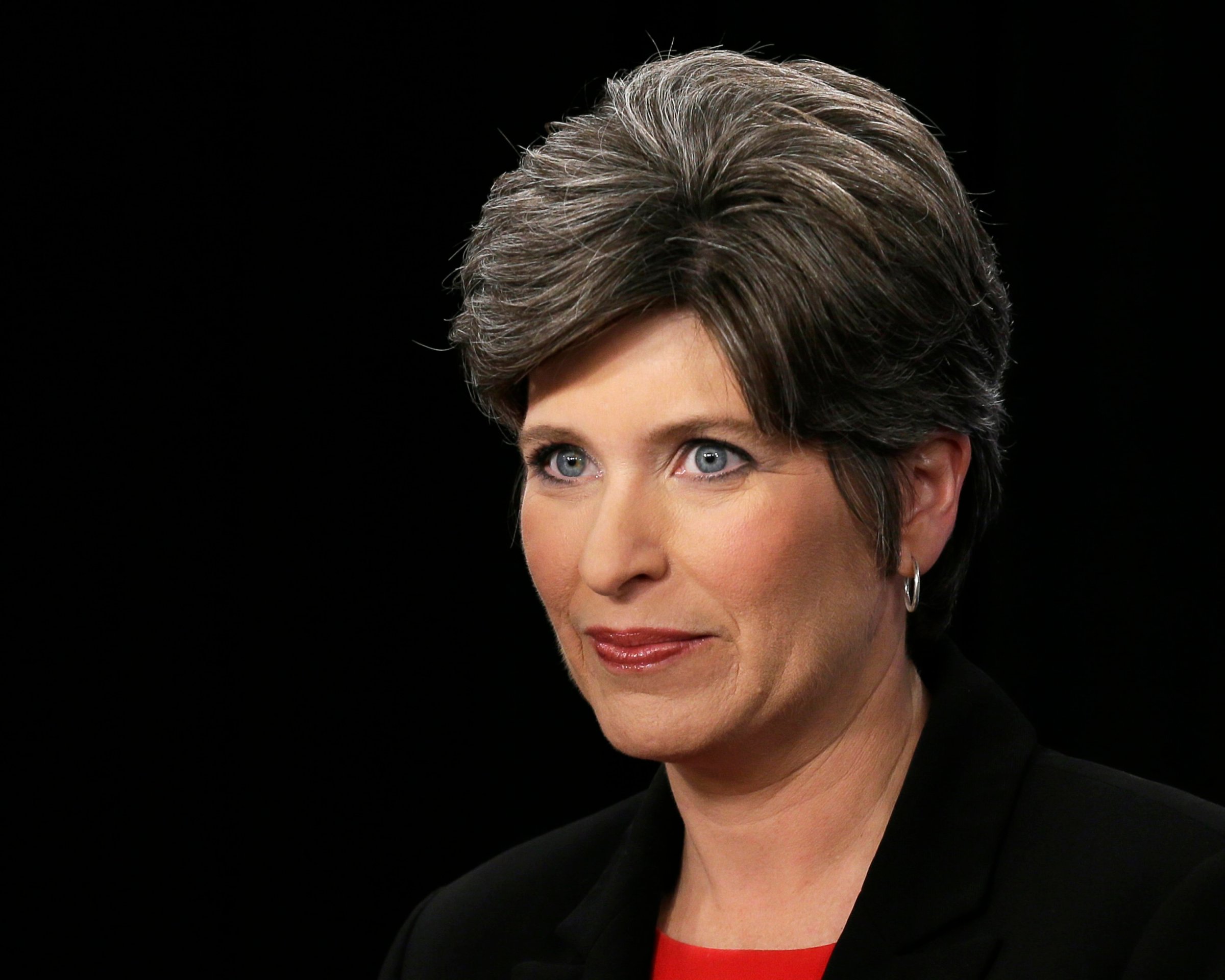
When video surfaced of a Democratic senator calling her “really attractive,” Senate candidate Joni Ernst took full advantage.
In an appearance on Fox News Monday, the Iowa Republican slammed retiring Sen. Tom Harkin, whose seat she’s seeking, for saying in a video that she’s “as good looking as Taylor Swift” but “votes like Michele Bachmann.”
“I think it’s unfortunate that he and many in their party believe that you can’t be a real woman if you’re conservative and female,” she said. “I believe if my name had been John Ernst on my resume, then Senator Harkin would not have said those things.”
Ernst is right that there’s a double standard for female politicians, but she’s not quite right about how it works. For one thing, people say male politicians are sexy all the time. In fact, it’s often an argument in favor of their candidacy.
Obama’s sex appeal won him a fan in “Obama Girl,” who made viral YouTube videos about her crush on the then-Presidential candidate in 2008. Rep. Paul Ryan’s (R-WI) rumored washboard abs were the subject of much speculation during his 2012 Vice Presidential campaign. Scott Brown, who once posed nude for Cosmopolitan, was the subject of a 2010 New York Times column called “Bringing Sexy Back.” John Edwards was voted People Magazine’s “Sexiest Politician” of 2000.
It’s not a recent phenomenon either. Some historians argue that JFK won the presidency in 1960 because he looked more handsome than Nixon during the televised Nixon-Kennedy debate.
But while attractiveness is a political asset for male politicians, it’s a liability for women.
A 2010 study from Ben-Gurion University of the Negev in Israel found that when female job applicants included a photo with their resumes, more attractive women were less likely to get hired than plainer ones. But references to physical appearance of any kind, flattering or insulting, can hurt a female candidate.
“When [a woman]’s appearance is commented on publicly during a campaign, it undermines her; it actually hurts her,” Sen. Kirsten Gillibrand (D-NY) said during the Real Simple/TIME event on Women and Success on Oct 1. “And it doesn’t matter if the comment is positive or negative. It undermines her credibility.”
That’s why comments about female politicians’ looks are seen as gaffes, while comments on men’s looks are considered funny and flattering.
Earlier this year, Gillibrand revealed in her book that she had been called “porky” and “chubby” by fellow Senators. Last year, Obama apologized to California Attorney General Kamala Harris after he commented that she was the “best-looking attorney general in the country.” Before he was defeated by Sen. Elizabeth Warren in 2012, then-Sen. Scott Brown responded to Warren’s comment that she didn’t have to take off her clothes to pay for college (a dig at Brown’s nude photo shoot) with an insulting “thank God.” And in 2010, Senate Majority Leader Harry Reid called Gillibrand the “hottest member” of the Senate, while she was sitting only a few feet away. Each of these comments created a minor scandal, and sparked debate about whether the female politicians were being “taken seriously.”
Sarah Palin is a perfect example of this. The former beauty queen-turned politician became a living punchline, thanks in part to her “sexy librarian hair” and resemblance to SNL comic Tina Fey.
So the problem with Harkin’s remarks isn’t that he wouldn’t have made them about a hypothetical John Ernst. The problem is that they would be seen as a problem for the real Joni Ernst.
More Must-Reads from TIME
- Donald Trump Is TIME's 2024 Person of the Year
- Why We Chose Trump as Person of the Year
- Is Intermittent Fasting Good or Bad for You?
- The 100 Must-Read Books of 2024
- The 20 Best Christmas TV Episodes
- Column: If Optimism Feels Ridiculous Now, Try Hope
- The Future of Climate Action Is Trade Policy
- Merle Bombardieri Is Helping People Make the Baby Decision
Write to Charlotte Alter at charlotte.alter@time.com